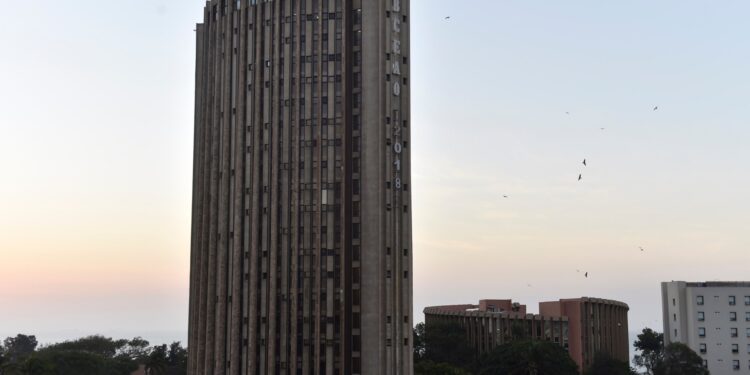4/24/2025
Several economic reports indicate that the future of Islamic financing in the West Africa region has become promising thanks to the increasing interest between investors and consumers, and because it represents a financial alternative to traditional systems, as it encourages its principles to establish financial systems that avoid usurious benefits, and works to share risks between the parties of customers.
In the last five years, the demand for banking services and Islamic financial products has witnessed a remarkable increase in many West African countries, especially Senegal, Burkina Faso, Niger and Cote d’Ivoire, which prompted the governments of these countries to issue Islamic instruments that attracted investors from the Middle East and Asia.
According to a report issued by the Central Bank of West African States in 2022, the Islamic Finance sector witnessed remarkable growth in the region, as 15 new licenses were granted to Islamic financial institutions in the period between 2018 and 2022.
According to the data of the Central Bank for West Africa, which includes 8 countries from the countries of the region, the number of institutions operating in the field of Islamic finance reaches 17 institutions, including 9 institutions operating exclusively in Islamic finance, and 8 institutions that provide services through specialized branches.
Beginnings
The beginnings of the spread of Islamic finance in the West Africa region date back to the early eighties, with the establishment of Islamic banks in Senegal, Niger, Guinea and Burkina Faso.
Although the specialized bodies in the field of Islamic finance in West Africa are still few compared to their number at the global level that exceeds 600 institutions distributed between banks and medium and small institutions, there are some diverse factors that may push financiers to expand investment and financing areas in the region.
Among the most important factors that encourage the expansion of investment in the field of Islamic finance is the large market in the West Africa region, as its population exceeds a quarter of a billion people, and 60% of its population secures the Islamic religion, which is in line with the ethics of alternative financing of the usurious system.
These factors have prompted some countries in the West Africa region to go towards Islamic financing as an attractive tool for investors and consumers alike.
In 2012, the Islamic Development Bank signed an agreement with the Economic and Custodian Union of West African countries to develop a regulatory framework for institutions wishing to provide Islamic financial services within the continental body.
This prompted the Niger to establish Islamic finance institutions whose branches extend in all countries, and Senegal has also adopted a similar politics since the establishment of the Islamic Bank in the capital, Dakar in 1983.
In Burkina Faso, the Islamic Finance Sector has witnessed a remarkable turnout in recent years, which strengthened its economy with the presence of 7 Islamic banks, foremost of which is the Coris Bank Baraka, which runs its work from the capital, Agadogo, and has branches that extend to all member states of the Economic and Strip of West African countries.
Burkina Faso strengthens this scene with two institutions for micro -Islamic finance, namely the “Islamic Finance Group” and the “Islamic Finance Corporation” dealing with support for the development of small projects, according to the spirit and principles of Islamic Sharia.
earnings
By virtue of the expected horizons behind investing in Islamic financing, some countries in West Africa have directed the issuance of Islamic sukuk to support development, and to attract investments from the Middle East and Asia.
In the year 2016, the Republic of Cote d’Ivoire carried out the largest issuance of sovereign instruments according to the Islamic finance system, as it has offered $ 240 million in the local currency, and participated in supporting the process institutions for Islamic finance, including the “Islamic Corporation for the Development of the Private Sector”.
Since 2010, Senegal has been organizing the International Forum for Islamic Finance, which aims to innovate in the field of financing, which has become burdened by the member states of the Economic and Country Union of West African countries.
The Dakar Islamic Finance Forum seeks to benefit from the countries of the region from the volume of Islamic finance industry that exceeds 300 billion dollars, at a growth rate between 10 and 15%.
In the countries of the Economic and Custodian Union of West African countries, some institutions that adopt the principles of Islamic financing have become a new position and reputation between consumers, and achieved high profits.
In the report issued by the Central Bank of West African countries in January 2023, the average annual growth of the number of Islamic financial institutions in the Union reached 54.3% in recent years, which reflects the dynamics of this sector and the interest of its growing investors.
Horizons
During the ninth session of the International Forum for Islamic Finance in West Africa, which was held May 21, 2024, in the capital, Dakar, the head of the African Institute for Islamic Finance, Mohamed Al -Amin Ambaki, said that “Islamic financing is a new field with strong economic growth, and has huge potential, and developed countries benefit more than developing countries and Islamic countries.”
At the same conference, Panasi Ouattara, Director of Financial Stability at the Central Bank of West African States said that “Islamic financing funds the real economy and removes speculation and interest rates, and therefore the funds are present to finance investments with very specific products.”
Patara added that Islamic financing is very useful, and it can support the sectors of agriculture and energy, and other fields in general, and may help achieve food sovereignty for the West Africa.



